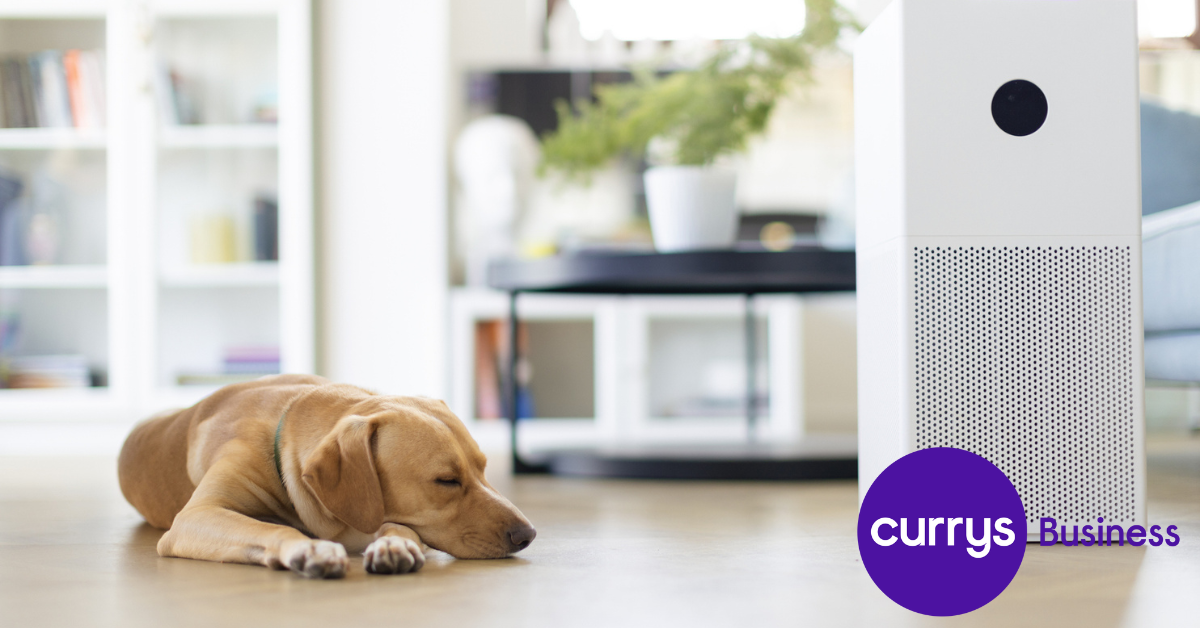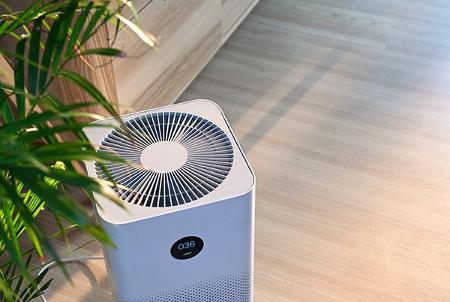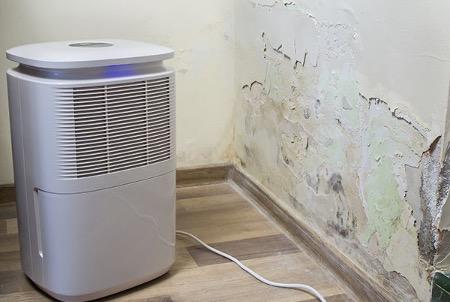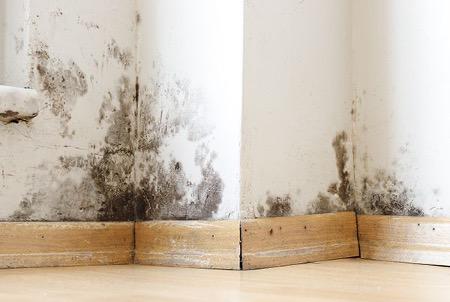

Air purifier vs. dehumidifier: Which one is best for your home?
Having 'healthy' air in your house is crucial for your comfort and wellbeing. If your air's full of dust, allergens ot too much moisture, can could be coughing and spluttering for days. Or, just as bad, mould might spring up here and there and start to spread.
That's where air purifiers and dehumidifiers come in.
How do air purifiers work?
Air purifiers will filter out all kinds of things from the air to make it, ahem, purer. How though? Well, dust, smoke, allergens and pollutants get sucked in and obliterated. And it’s all done via a series of clever filters. For instance, HEPA filters are the bee’s knees at capturing tiny particles like pollen, pet dander, and even some bacteria and viruses. You’ll be breathing cleaner, literally.
On the other hand, activated carbon filters excel at vaporising all sorts of smells. So, if something’s stinking up the place, reach for the air purifier. And if you want to go really heavy-duty, some come packed with cool tech like UV light or ionisers. They might sound like something from a sci-fi flick, but they’ll kill microbes in their masses. If you keep getting sick, these pesky critters could be the cause!

How do dehumidifiers work?
Like the name suggests, dehumidifiers are designed to reduce humidity in the air by extracting moisture from it. Air gets drawn into the dehumidifier, where any moisture is then condensed into water and collected in a tank. The dry air is then pumped back into the room, which in theory should make your space a whole lot cooler.
There are two main types of dehumidifiers. Refrigerant dehumidifiers use a special refrigeration process to condense moisture. While desiccant dehumidifiers have a drying agent that absorbs moisture instead. So, in a nutshell, you’ve got options.

Benefits of air purifiers
Here's why you should get yourself an air purifier:
- Allergen reduction - Pollen, pet dander and dust mites will all take a battering from an air purifier. It's really a no-brainer if you or the house is suffering from any of these.
- Better respiratory health - By filtering our all those pesky particles, you might find your asthma and allergies don't hit you quite as hard.
- Odour removal - Some air purifiers use activated carbon filters to get rid of stinky smells. So, when you burn your toast or your furry friend is kicking up a whiff, fire it up and make your home smell a whole lot fresher.
- Better sleep - Cleaner air can give you better quality zzzzzzs - especially if you're sensitive to airborne contaminants.
Benefits of dehumidifiers
Dehumidifiers have plenty going for them too:
- Extra comfort - Dehumidifiers can make rooms feel cooler and more comfortable especially in hot sticky weather.
- Health benefits - Controlling the humidity can reduce respiratory issues and lower the chance of allergic reactions that are triggered by high humidity.
- Dust mite control - Dust mites will multiply massively in moist environments. but, if you lower the humidity levels, you'll be able to keep them in check.
- Mould and mildew prevention - Mould and mildew doesn't just damage your property and make everything look a bit grim. If left, it can really affect your health. So, crack out the dehumidifier and sort it before it becomes a big problem.

What are the differences between air purifiers and dehumidifiers?
Air purifiers and dehumidifiers are built different…
What they do:
- Air purifiers – Target airborne pollutants like dust, allergens and smoke to improve air quality.
- Dehumidifiers – Focus on controlling and reducing moisture in the air to prevent mould and mildew.
When to use which:
- Air purifiers – Ideal for homes with pets, smokers, or people with allergies/asthma. Put them in rooms you spend a lot of time in, like bedrooms and the lounge.
- Dehumidifiers – Best for damp, humid spots like basements, bathrooms, kitchens and laundry rooms. They’re also handy if your place is especially humid, or you’re worried about mould.

FAQs
Is an air purifier the same as a dehumidifier?
While they usually pop up in the same sorts of conversations – and are both there to improve the air in your house - no, they’re not the same. Air purifiers are designed to filter out nasty pollutants, allergens and other particles from the air to make it cleaner. On the other hand, a dehumidifier tackles (and lowers) the moisture and humidity levels, preventing mould, mildew and dust mites.
Does a dehumidifier purify the air?
No, a dehumidifier doesn’t purify the air in the same way that a regular air purifier does. By extracting any excess moisture, it’ll stop mould etc, which absolutely thrives in humid conditions. This can indirectly boost the air quality, but it doesn’t filter out bad particles. So, for that stuff, you’ll need a purifier.
Do air purifiers dehumidify?
Nope. Air purifiers don’t dehumidify the air. Like we’ve mentioned already, they filter out any bad stuff from the air instead, giving you way better air quality.
Can I use an air purifier and a dehumidifier at the same time?
You sure can. And they’re a great team. In homes with poor air quality and high humidity, both can work well together to really improve your indoor environment. And like they say, two heads (or air-based devices) are always better than one.
How much does it cost to run an air purifier vs. a dehumidifier?
Air purifiers are generally less expensive to run, as they don’t use as much energy as dehumidifiers. But the cost of running both is going to completely depend on their wattage, and how long you’re using them for each day. On average, an air purifier might cost about £10-£20 per year to run. While your dehumidifier could rack up a bill of around £50-£100 over 12 months.
How long should I run my air purifier or dehumidifier each day?
You’ll get the best results when you run air purifiers continuously. But you can tweak your run time based on the size of your space and the current air quality.
On the other side of things, dehumidifiers should be used in damp spaces, running for about 8 to 12 hours per day. This’ll help to keep the humidity in the room at the best possible level.
What room is best to run an air purifier or a dehumidifier in?
Air purifier:
- You should put your air purifier wherever the air quality is concerning you, and in the room you spend most of your time in – whether that’s your bedroom or living room.
- Cleaner air can boost the quality of your sleep. And it’s a must-have to keep asthma and allergies in check.
- They’re especially helpful if there’s lots of dust, pet dander, pollen or smoke lingering about in a particular spot.
Dehumidifier:
- The best rooms for a dehumidifier are any with a lot of excess moisture, like basements, bathrooms, kitchens and laundry rooms. Or ones that just feel really stuffy or humid.
- Basements in particular are usually damp and more likely to suffer from mildew and mould.
- In bathrooms and kitchens – where steam and moisture are made from the shower or your kettle etc – a dehumidifier can lower the level of humidity and stop condensation.

